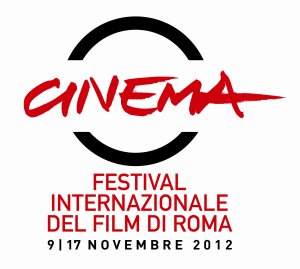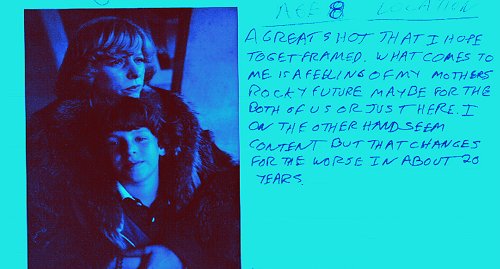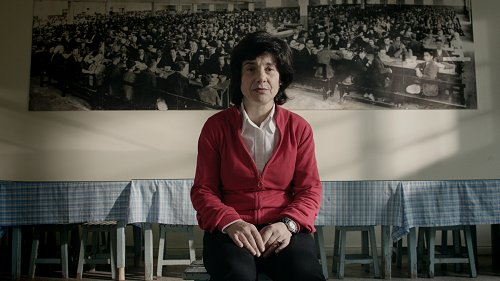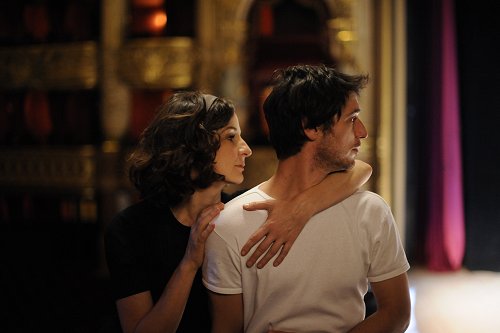
For the second year in a row the International Cinephile Society has been invited to join the International Rome Film Festival, the second biggest film event in Italy after the Venice Film Festival, now in its seventh edition.
True to newly appointed artistic director Marco Müller's promises, this year's edition lacks the big stars, but offers a wide selection of hidden gems from all over the world. The first four days of the festival introduced the audience to movies coming from the US, Portugal, Belgium, Japan, France, China, Italy, Holland, the UK, Australia and even the most remote of Russian regions.
For our first report we'll take a look at what the ICS had the chance to see during the very first day of the Roman festival.
Opening the CINEMAXXI competition for innovative filmmaking and audio-visual art was the American documentary A Walk in the Park directed by Amos Poe. Dealing with the story of a troubled man who has a toxic relationship with his overbearing mother, the movie heavily uses quotations ranging from Alice in Wonderland to Jung, and constantly goes back and forth between the protagonist's story and the classic Alfred Hitchcock movie Psycho, creating parallels that are often more disturbing than the actual story being told. While visually appealing, this use of literature and pop culture visual references makes the movie derivative and not really focused on a story that is probably interesting enough to sustain a simpler approach.

A scene from A Walk in the Park by Amos Poe
The CINEMAXXI out of competition selection this year mostly includes movies from Portugal and the region around Guimarães, celebrating the city's status as cultural capital of Europe for 2012. Two anthology movies got most of the attention during the first day, Centro Histórico which features four episodes directed by Aki Kaurismaki, Victor Erice, Pedro Costa and legendary Portuguese auteur Manoel de Oliveira, and Histórias de Guimarães, with three episodes directed by João Nicolau, João Botelho and Tiago Pereira.
The first anthology reads like a melancholy collection of tales about loneliness, loss, and hope for a better future. Aki Kaurismaki's enchanting episode Tavern Man introduces the audience to a character who can only be described as the saddest man who owns the saddest restaurant in the world. In Kaurismaki's silent little world his character tries his best to improve his situation and in doing so offers what is one of the most poignant editing choices of the festival so far: the man orders lunch from his fancy competition to improve his own recipes, and as he tastes the best fish soup he's ever had, his mind immediately wanders to the possibility, or perhaps the memory, of happiness offered by a night out with the woman he loves, dancing and being happy together.
For his episode Broken Windows Victor Erice chose the documentary approach and interviewed several ex-workers of one of the most important textile factories in Portugal, which closed in 2000 after 150 years of activity, leaving hundreds of people unemployed. Each interview tells the history of a whole life encapsulated in just a few minutes, and the richness of each life comes through, despite all the hardship and disappointments, with the director completely disappearing behind his interviewees.
Pedro Costa's episode Sweet Exorcism is maybe the weakest of the four. The film deals with multiple personality disorder presented as a sort of ghost story in which each voice in the main character's mind is a soul stuck in a wasteland, the wasteland of the character's thoughts, memories and tragic past as a soldier in the Portuguese revolution of 1974. While the idea is certainly appealing, the episode feels too long, and once the novelty of the approach wears off there is very little to keep the audience's attention.
Manoel de Oliveira's episode The Conquered Conqueror is full of irony and, at 103, the director shows how much fresher and more original his ideas are compared to much younger colleagues. In the city of Guimarães, de Oliveira's male muse Ricardo Trêpa is a tour guide who apologises for the lack of respect shown by a noisy group of American tourists to the statue of Portugal's founder and national hero Alonso Henriques the Great.

One of the interviewed former textile workers in Victor Erice's episode Broken Windows from Centro Histórico
Histórias de Guimarães is a collection of three short films dealing with the city and its surroundings. The first episode is a dark fairy tale in which a long-haired princess blesses – or curses? – a lonely man with the gift of tears: whoever he meets will be so moved by his presence that they will invariably start weeping. The idea is nice, the execution is flawless, but the film lacks the dark humor which could have made it truly great and feels like something that takes itself too seriously when its themes of loneliness and longing could have been handled with more naivete. The second episode follows a young woman as she experiences the festival of Nicolines, a religious holiday during which dances and music are dedicated to Saint Nicolas by the students of the city. The film never tries to be anything more than a collection of images from the festivities, very nice images too, but frankly never too engaging. The third episode is the real gem of the whole movie. It’s a joyful homage to all the possible different shades of music and sound that can be found in the Portuguese tradition, with a solo guitar player joining (and trying to harmonize with) a wide array of musical people, everything from a group of old women singing folk songs a cappella to a kid rapping in the streets. The collection of people displayed by the short film is a pleasure to watch, and their natural presence and the utter joy they feel in their music makes this one of the most humane pieces of filmmaking seen at the festival.
Kid from Belgium, directed dy Fien Troch, is one of this year’s main competitors for the Alice nella Città – Alice in the City youth award, which just last year went to another Belgian feature, North Sea Texas (ICS interview with director Bavo Defurne here). While North Sea Texas was dreamy and whimsical, Kid definitely moves into bleaker territory as it tells the story of two young brothers who lose their mother and try to cope with their loss. While the direction of the two very young actors is admirable, the movie loses itself in what I can only call grief porn towards the end, and the cold, distant tones of the first half don’t mix well with what comes after.

A scene from Mains dans les Mains by Valerie Donzelli
Mains dans les Mains – Hand in Hand is the third feature film directed by French actress Valerie Donzelli and it opens the main competition of the festival. The movie is a pleasant surreal comedy in which the lives of a humble handyman who likes to dance (the amusingly boyish Jérémie Elkaïm) and the artistic director of the Paris Opera (a deliciously and unexpectedly vulnerable ice queen played by Valérie Lemercier) are joined by a curse which forces them to always stay close and make the same gestures. Donzelli’s film is light and it works on that level. But when the director tries to throw darker shades into the mix it often doesn’t come together and loses focus, while trying to say too much about love, desire, relationships and the struggles of communication between men and women with too little substance. It’s still a funny, well-acted, competent piece of fluff and that is something not often seen at this festival, so the possibility of something truly lighthearted, if imperfect, is definitely welcome.
That wraps up our first day at the Rome Film Festival for the ICS; follow further updates for more reports and reviews. Coming soon: Takashi Miike's new thriller, Russian fairy tales, an innovative film project by Paul Verhoeven, Larry Clark, P.J. Hogan and more…
